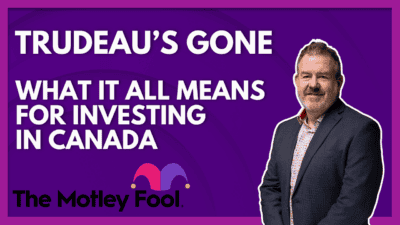A summer report from Generation Squeeze, a Canadian non-profit organization which advocates for young adults, estimated that it may take 29 years for the average millennial to save enough money to afford a house in Canada’s largest cities. Affordability has grown into a pressing issue that has crossed demographic lines, inspiring all the major parties in this federal election to propose relief for Canadians in the housing sector.
It behooves young investors to explore their options as we look ahead to the next decade. “It’s tangible, it’s solid, it’s beautiful. It’s artistic, from my standpoint, I just love real estate.” This quote was uttered by current U.S. president Donald Trump. In the modern era, investors have more than one way to invest in the real estate sector. There is a growing debate over the effectiveness of real estate investment trusts (REITs) as an investment over conventional real estate. Which is the better option for young investors? Let’s dive in and find out.
The case for REITs
A REIT is a company that owns income-producing real estate. REITs distribute their income, which is primarily from rent, to their shareholders. A REIT can be purchased like any other equity, adding a level of accessibility and convenience to this investment method. There is the option of REIT ETFs, but in my view, investors should avoid paying higher MERs and instead focus on individual REITs.
For example, take RioCan REIT (TSX:REI.UN). This is the second-largest REIT available on the TSX. Shares have climbed 16% in 2019 as of close on October 16. The dovish turn by central banks has produced a favourable environment for REITs and other stable income vehicles like utility and telecom stocks.
RioCan offers a monthly dividend payout of $0.12 per share. This represents a tasty 5.4% yield. If you owned 750 shares of RioCan in your TFSA, that would amount to a $90 per month tax-free dividend payment. REITs like RioCan also let you hold income-producing real estate that saves investors cost, work, and the general risk that comes with owning conventional real estate.
Does that mean that young investors should spur the traditional real estate market entirely?
The case for real estate
Direct real estate investment means that the investor is in full control of their destiny. In the case of a rental property, you can set prices and who lives and rents your property. Direct real estate ownership also provides tax breaks such as depreciation write-offs and mortgage tax deductions.
Real estate is expensive in Canada, especially in large cities, which means you will likely be dealing with a bigger investment. This increases the burden, but it can also lead to much more earnings over a shorter time span. Let’s take our RioCan REIT example again. A $20,000 investment in RioCan at the start of 2019 would have netted an investor just over $3,200 in capital gains. Said investor would have also gobbled up over $90 in monthly dividends over that period, adding up to just over $900 after the October payout.
However, a $200,000 investment in a property that appreciated 10% in the same year would equal a $20,000 profit.
Conclusion
REITs offer flexibility, income, and accessible exposure to the real estate sector for young investors. However, the chance for huge appreciation with a larger investment still has me picking the traditional route in conventional real estate. Young investors should utilize REITs to build nice income and save up for a property.






